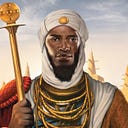African Folklore and Its Influence on Black American Literature
In the grand tapestry of human history, stories have always been the threads that weave us together. They entertain us, educate us, and, most importantly, they shape our understanding of the world and our place within it. Nowhere is this more evident than in the enduring influence of African folklore on Black American literature.
Often overlooked, African folklore is a treasure trove of wisdom, mystery, and cultural richness. Its oral traditions, from the enchanting Anansi tales to the enlightening parables of the Bantu, carry the collective wisdom of generations, passed down through time. They reflect a world seen through the lens of African ancestors, a world rich with lessons about life, community, and the human spirit.
When we turn our gaze to Black American literature, the echoes of these ancestral voices are unmistakable. Many Black authors have not just acknowledged but celebrated their African roots, weaving elements of traditional folklore into their narratives. In doing so, they have created a unique literary tradition that reverberates with the rhythms of Africa.
Let’s take a journey through a few notable examples.
Zora Neale Hurston’s “Their Eyes Were Watching God” is a classic illustration. Drawing heavily on her anthropological research in the South and Caribbean, Hurston laces the novel with African folklore elements, creating a narrative that blends the personal with the mythical.
Toni Morrison’s “Beloved” is another masterpiece where African folklore elements are deeply interwoven. Morrison uses the African concept of Sankofa, looking back to the past to inform the future, as a central theme. It’s a stark exploration of the African American experience, underscored by the haunting legacy of slavery.
Then there’s the work of Ralph Ellison, whose “Invisible Man” incorporates elements of African spirituality and mythology, grounding its exploration of racial and personal identity in a rich cultural heritage.
These authors, and countless others, have tapped into the power of African folklore, using it to express unique perspectives on the Black experience in America. In doing so, they have illuminated the path for future writers, enriching Black American literature with the timeless wisdom of African stories.
In the end, stories are more than just tales. They are bridges spanning time and space, connecting us to our past and guiding us into the future. The influence of African folklore on Black American literature is a testament to this enduring truth: our stories, like our lives, are intertwined. And it’s through these shared narratives that we understand not only where we’ve come from, but also where we’re going.
